📖 User Guides
🪙 How to create a token
- Go to POTLAUNCH and click on Token Creator in the navigation bar.
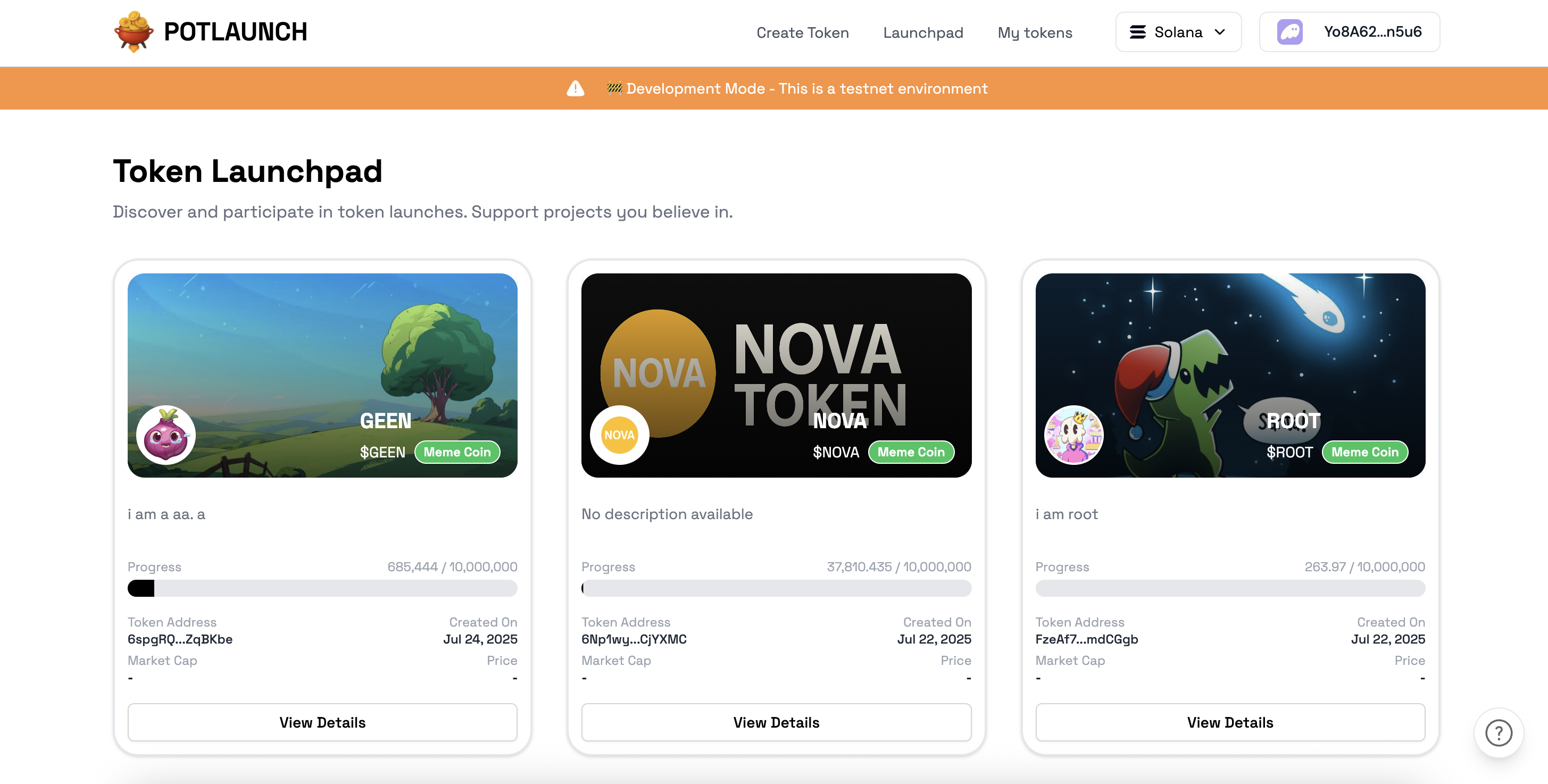
- 🦊 Connect your wallet (Connect Wallet).
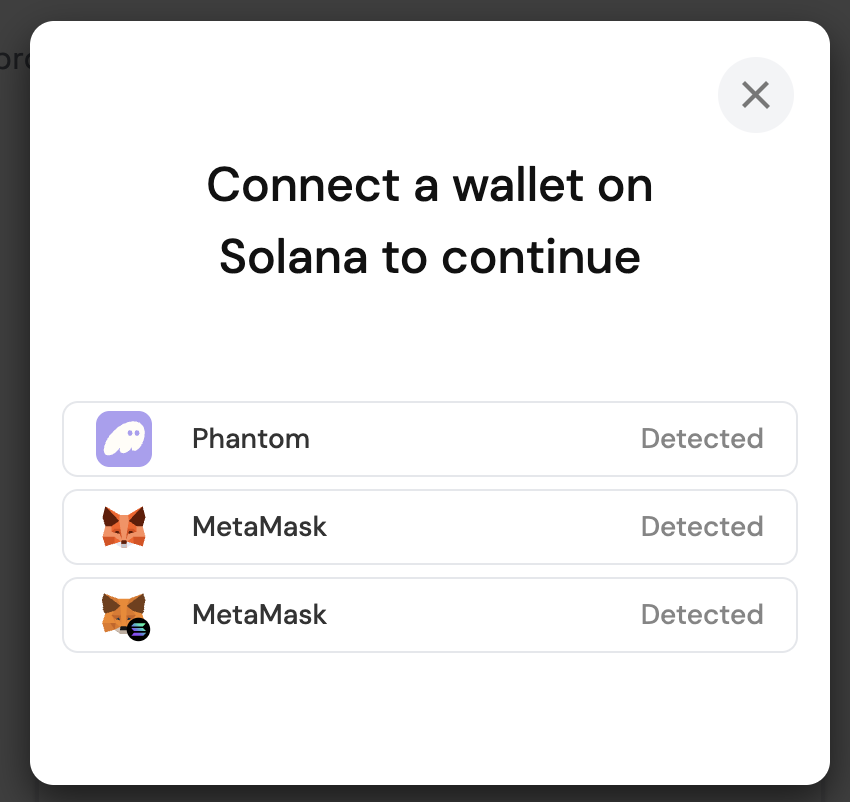
- 🧩 Select a token template that fits your purpose.
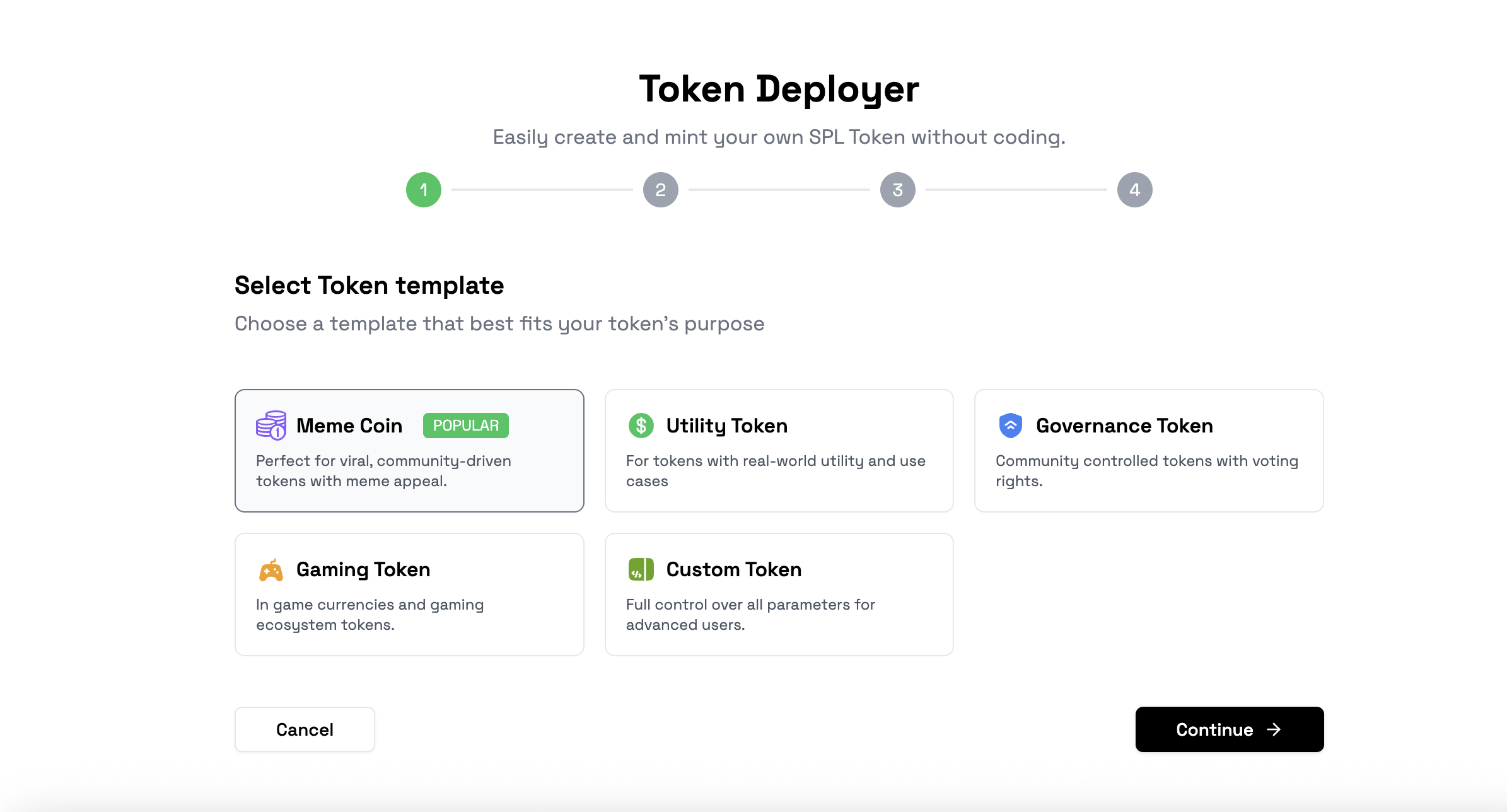
- 🔄 Select an exchange.

- 💸 Choose a pricing mechanism (Pricing Mechanism).
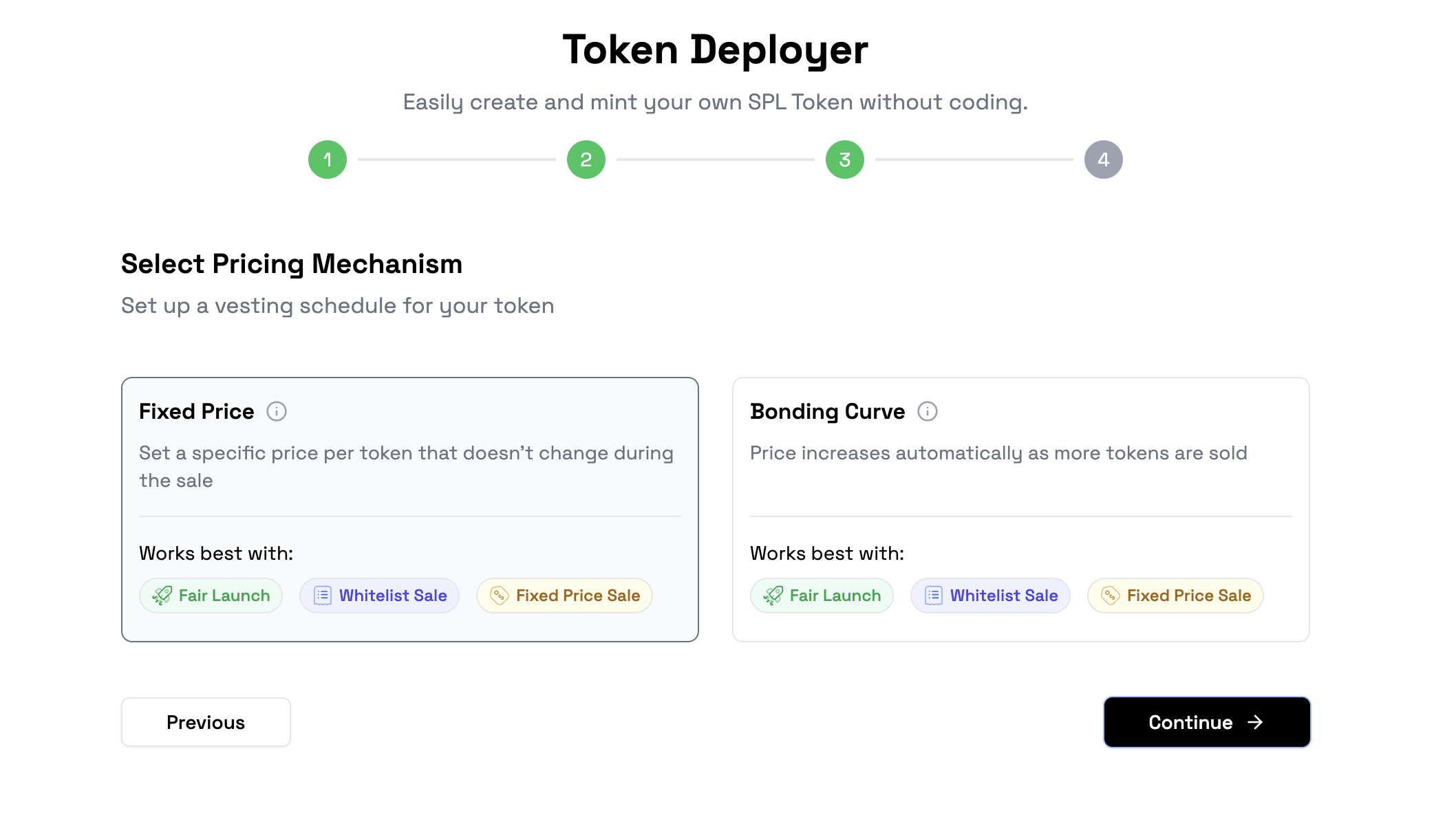
- 📝 Review your selection (Review Your Selection).
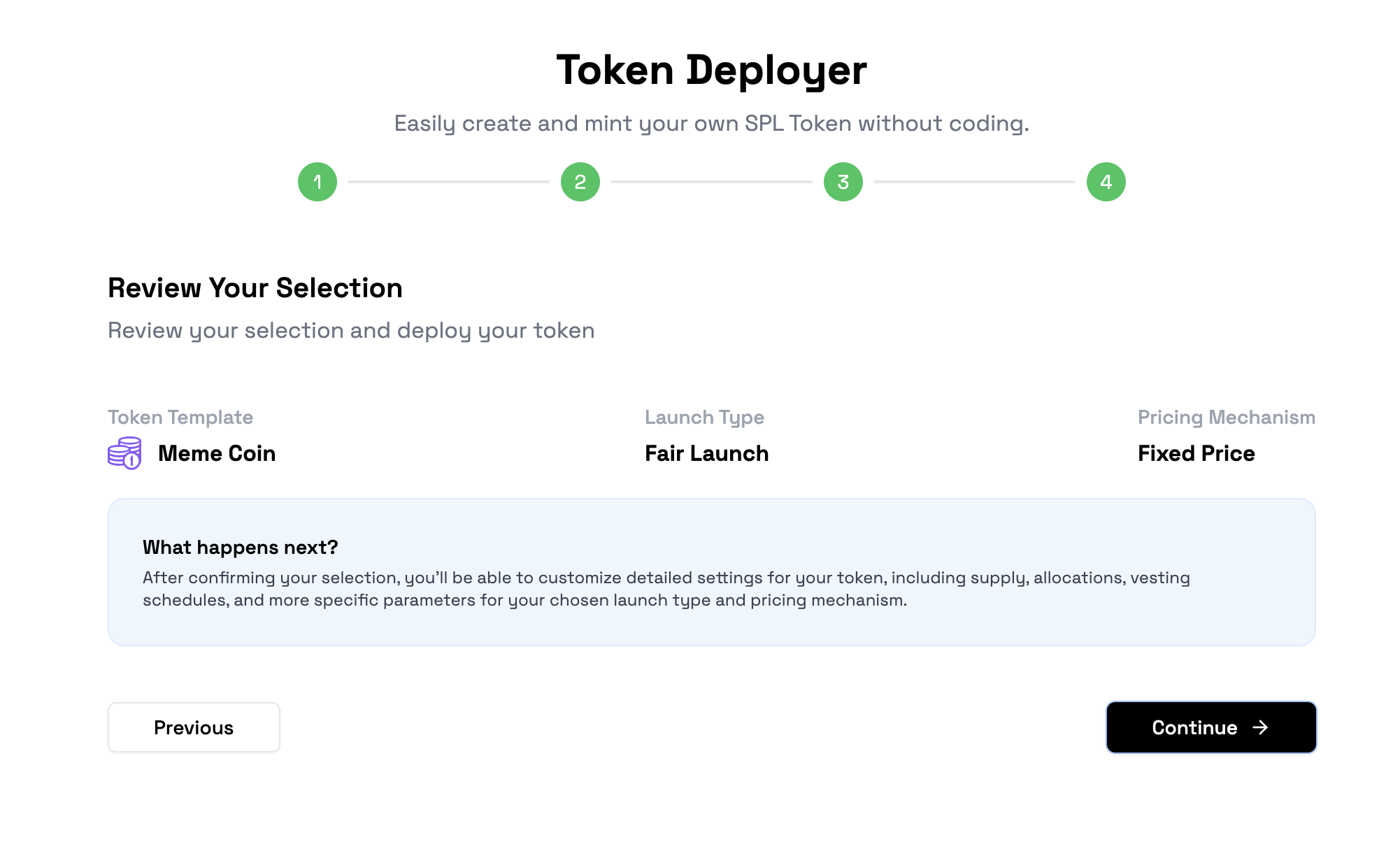
- 🏷️ Enter basic information: Name, symbol, total supply, description, logo, banner, etc.
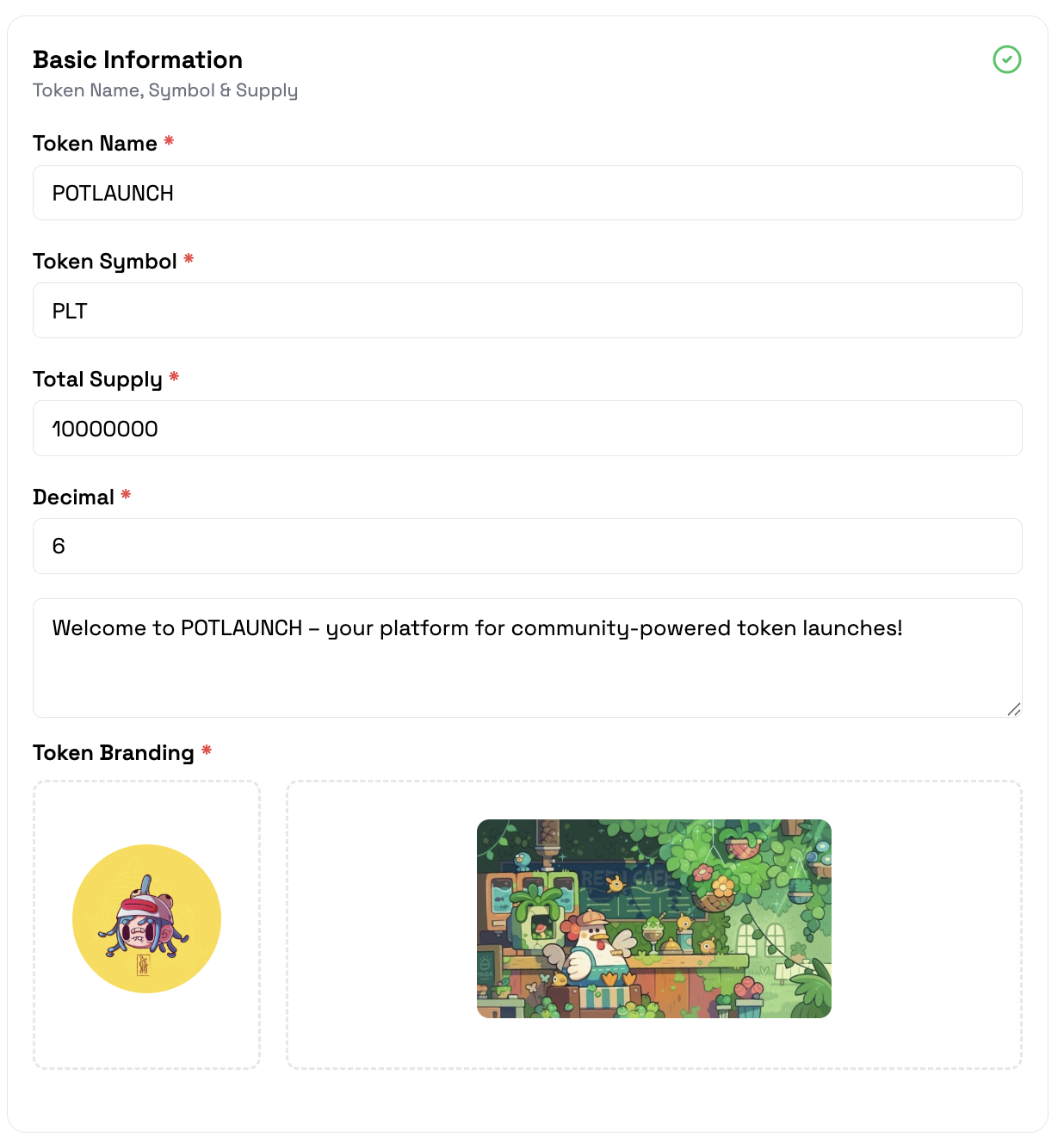
- 🌐 Add social links: Twitter, Telegram, Discord, Farcaster, Website, etc.

- 🎁 Set up token distribution: Add allocations, vesting if needed.
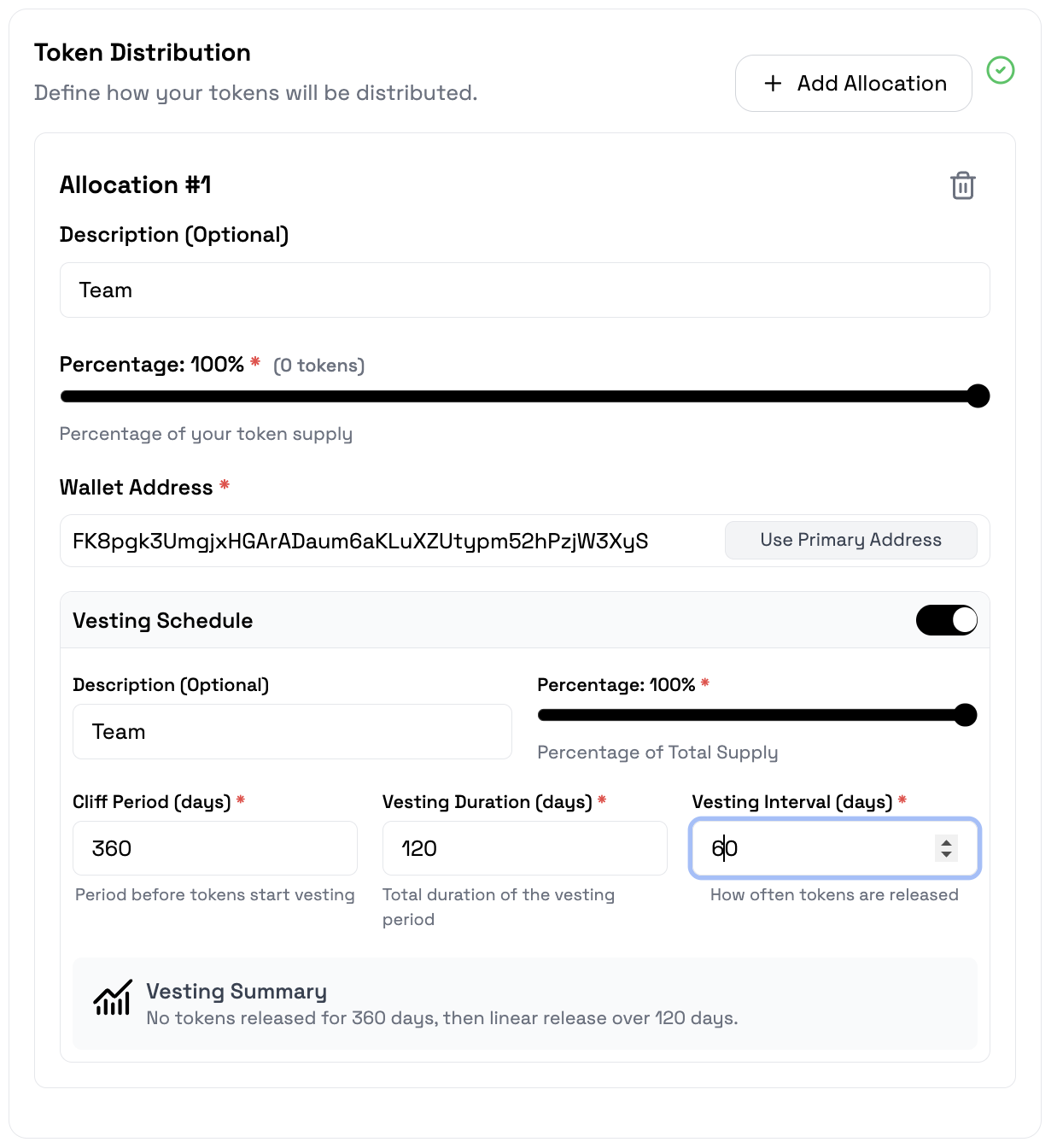
-
📈 Configure price mechanism: Bonding curve or fixed price.
- Select template price mechainsm
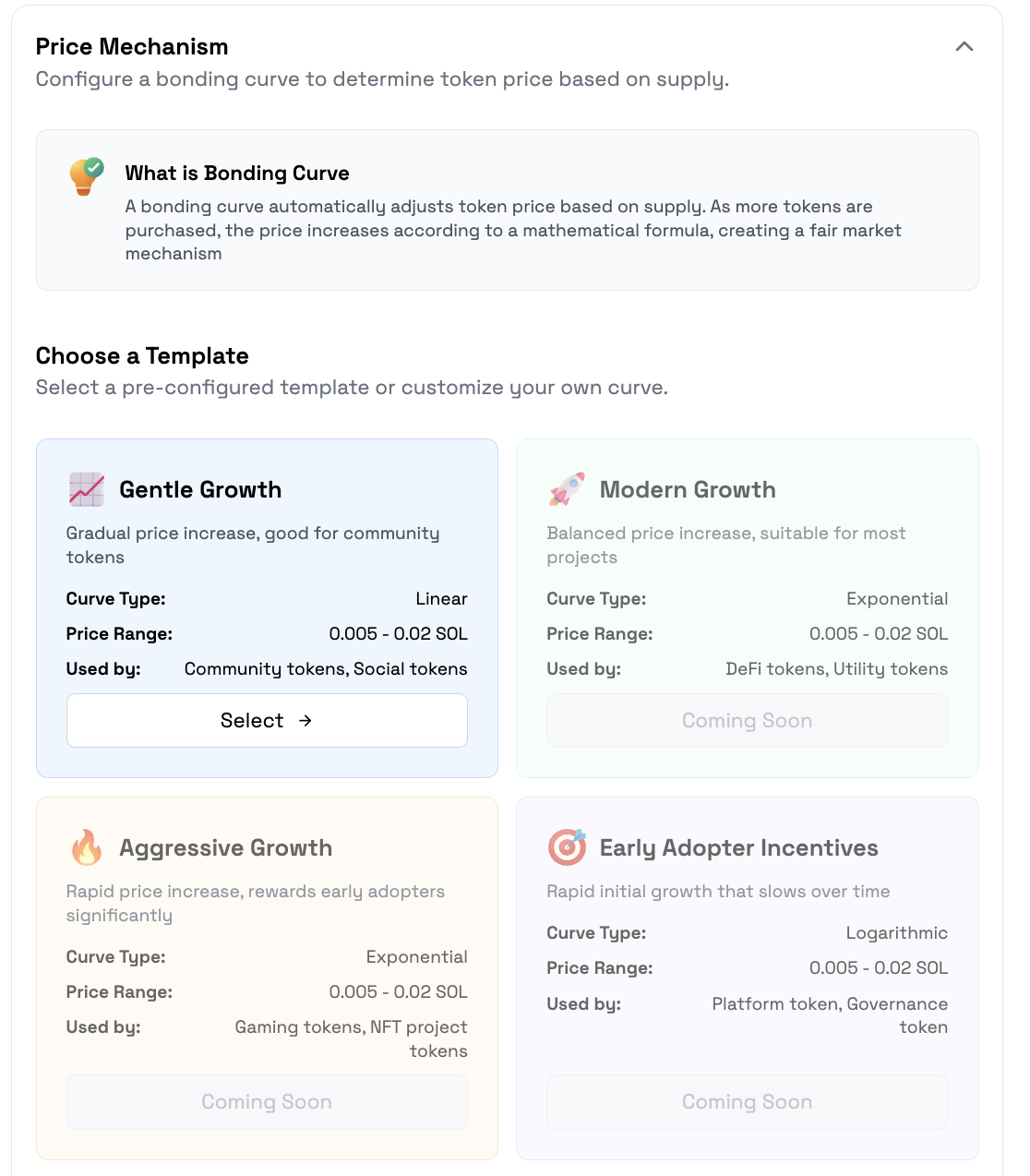
- Configure price mechainsm
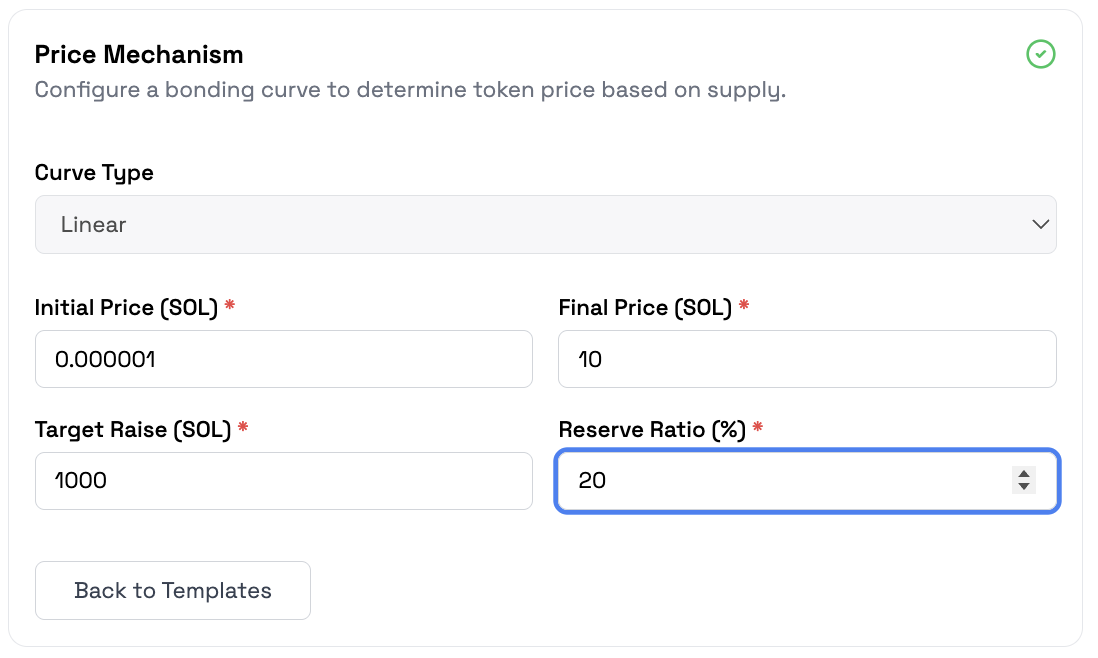
-
💧 Set up DEX listing: Choose DEX, liquidity source, SOL amount, etc.
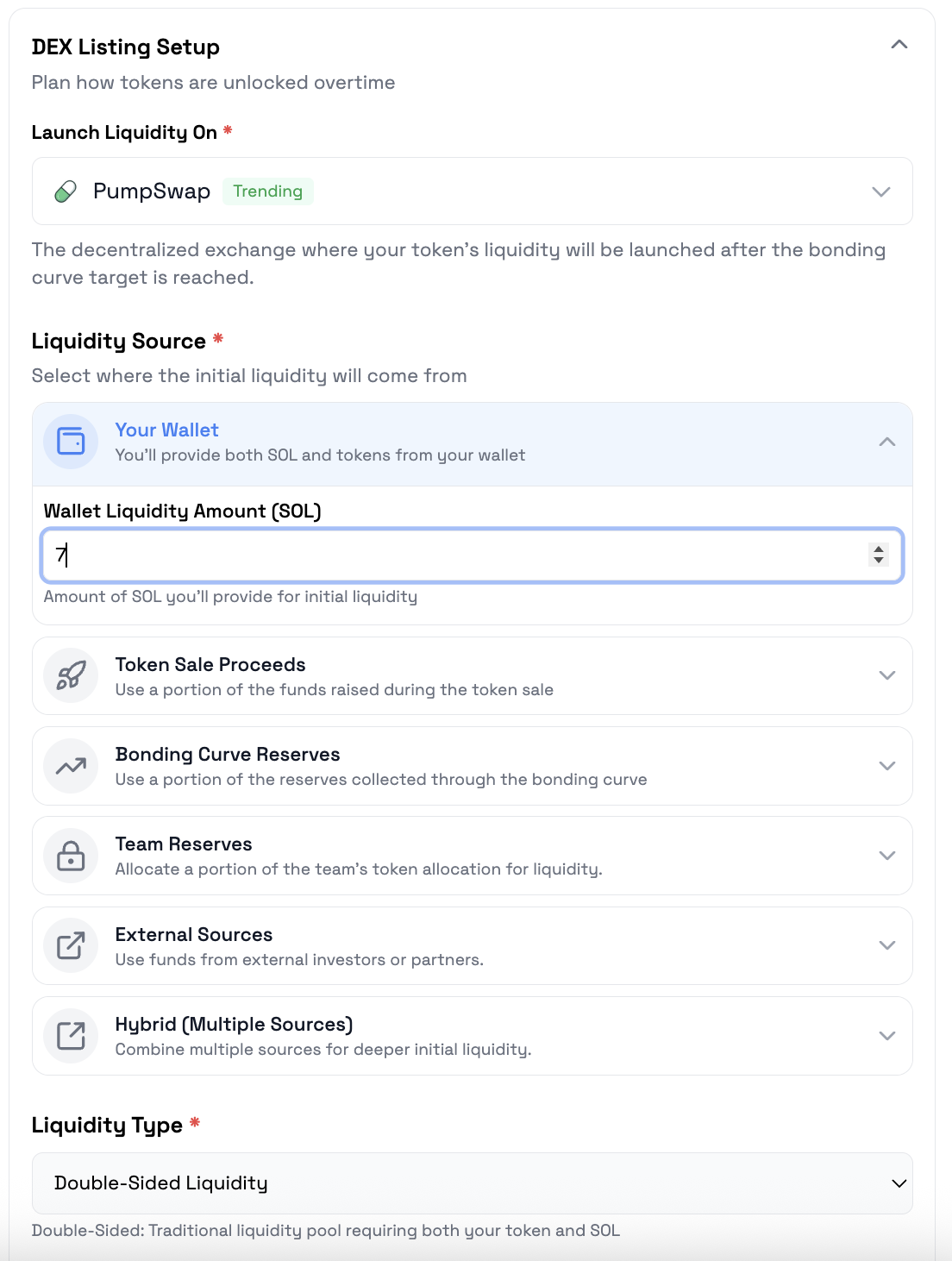
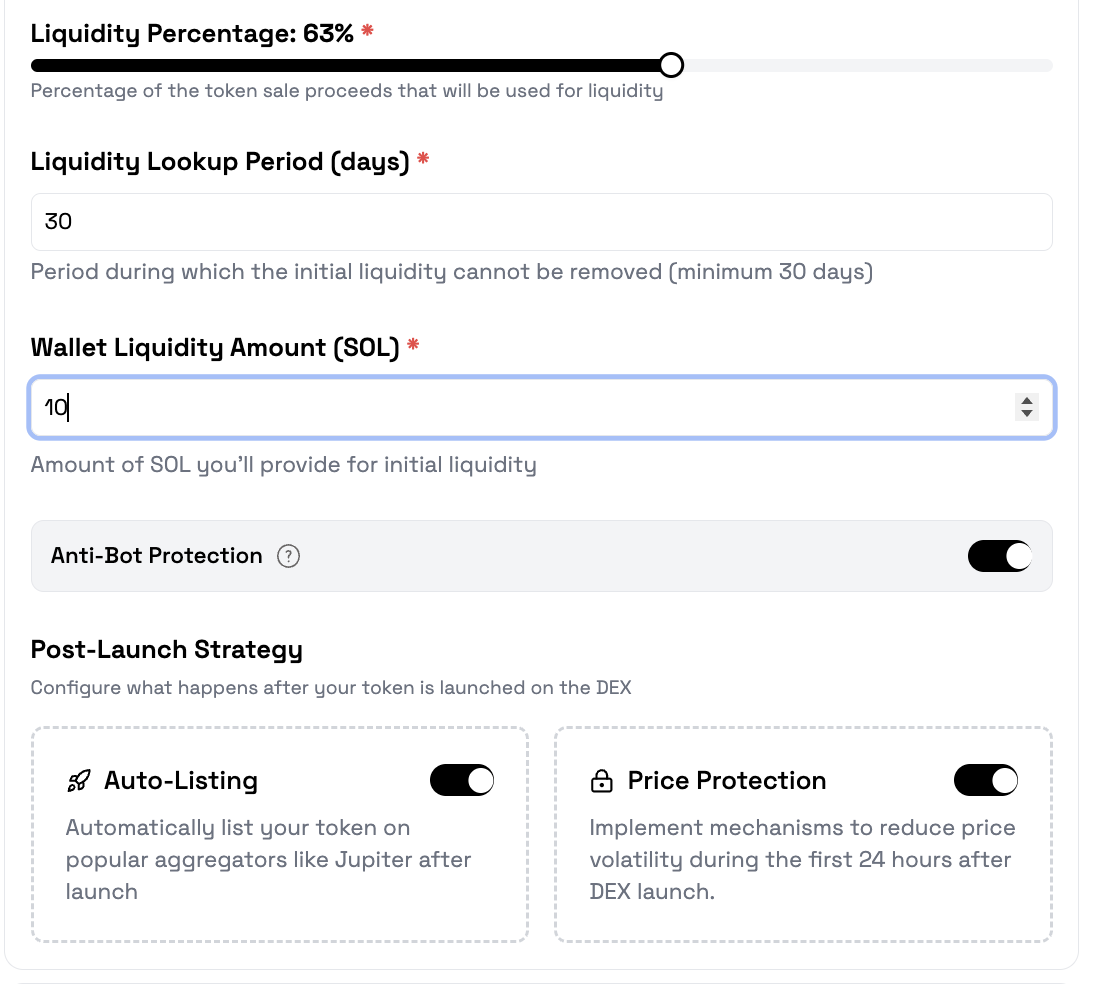
- 💰 Configure fees: Mint, transfer, burn fees, fee recipient address, etc.
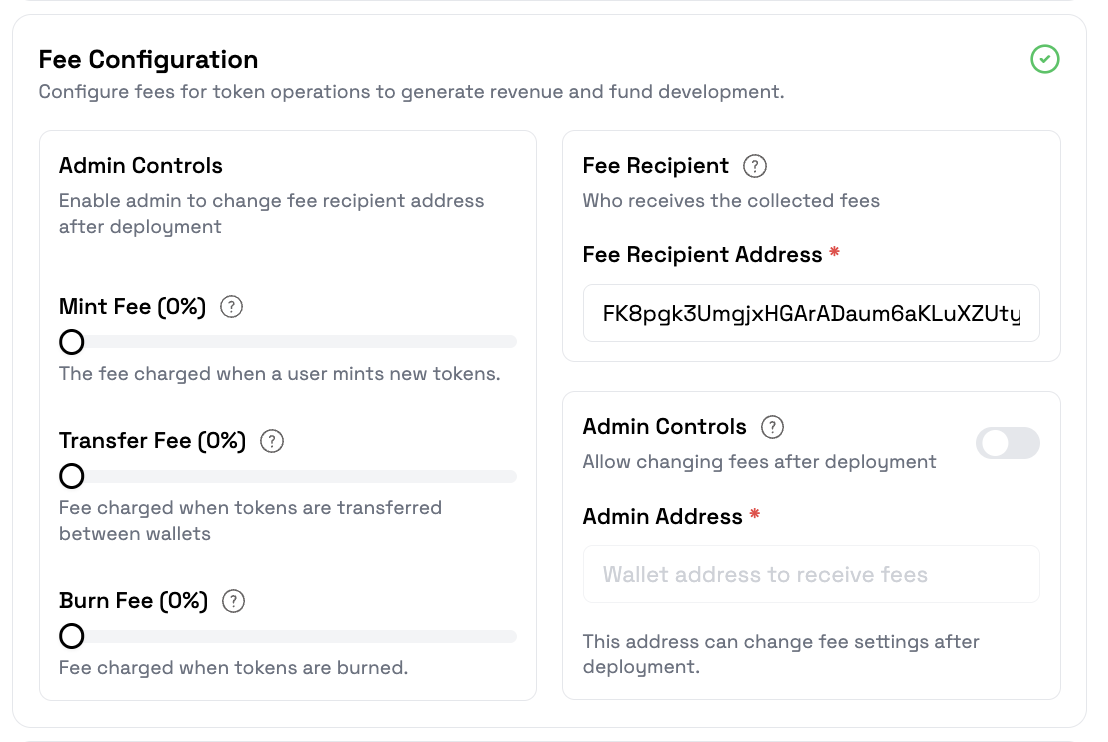
- 🚀 Set up token sale: Launch type, soft cap, hard cap, schedule, min/max contribution, etc.
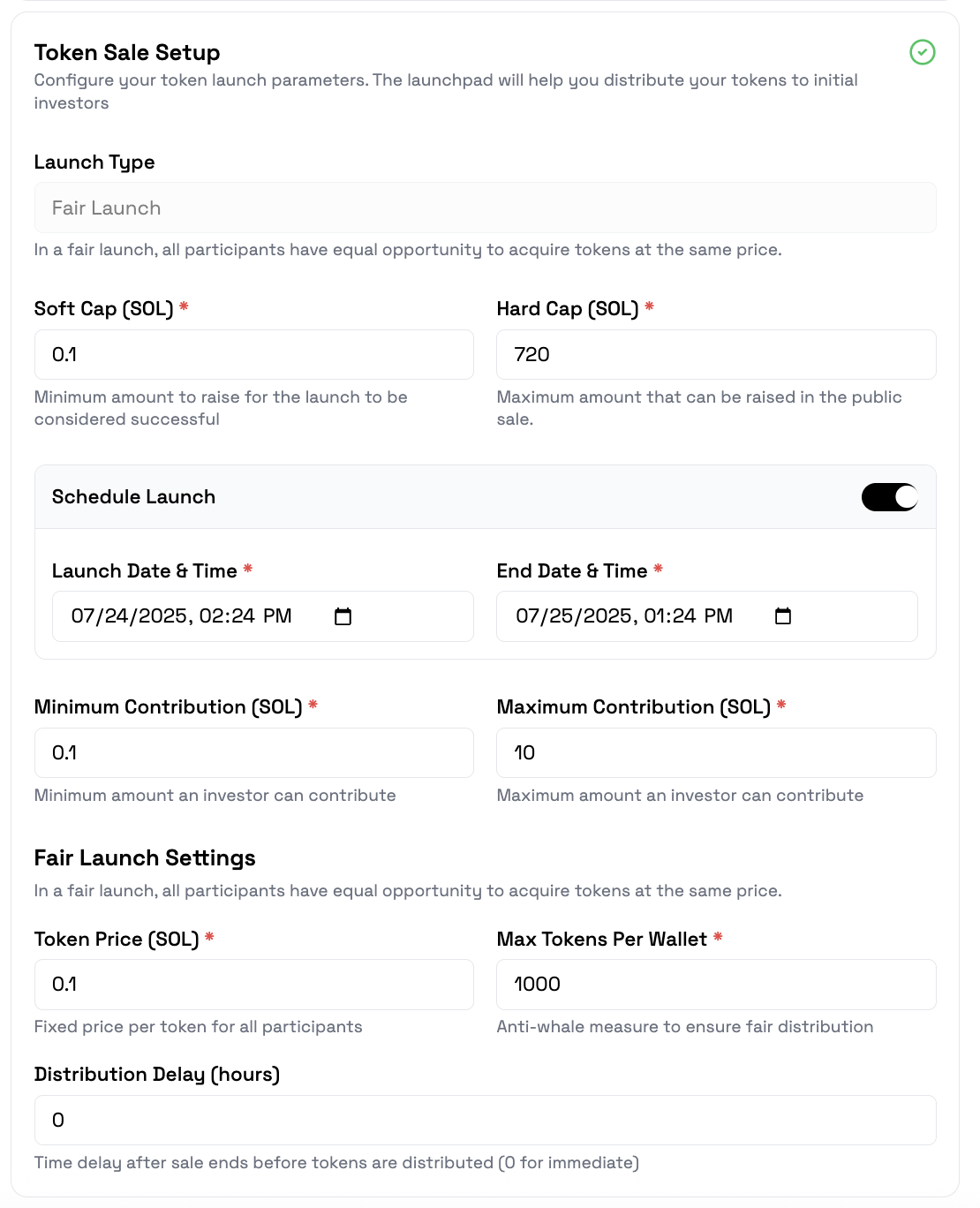
-
🛡️ Admin setup: Admin wallet address, admin structure, revoke mint/freeze authority, etc.
- Admin Structure: Single Wallet
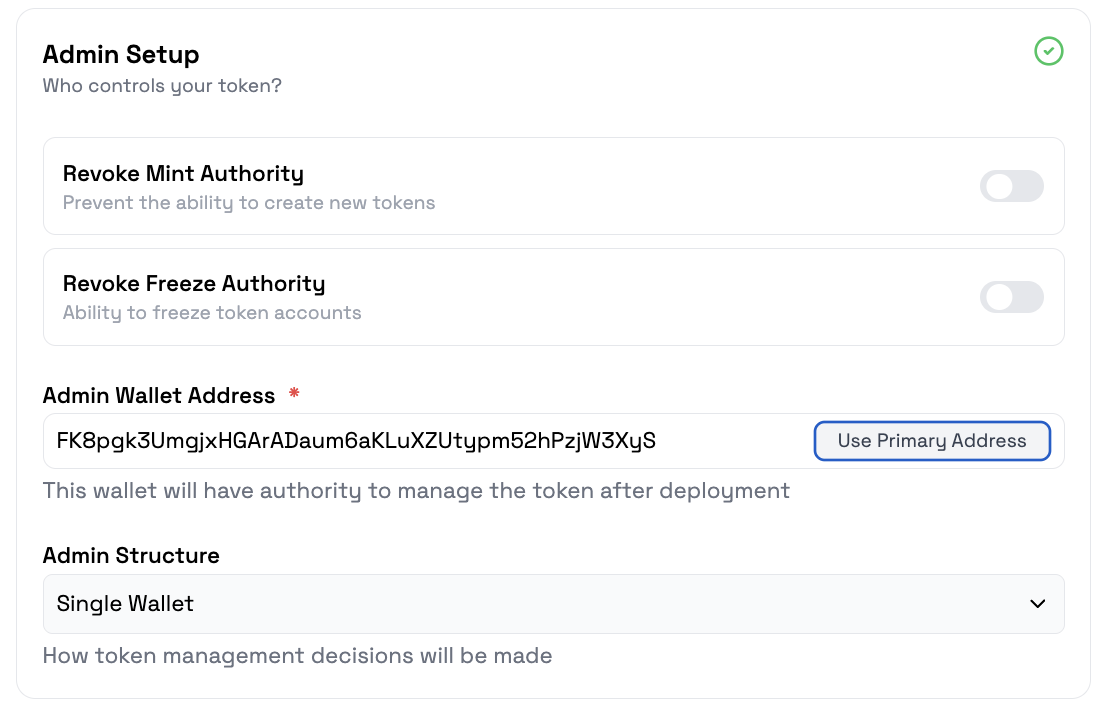
- Admin Structure: Multi Signature
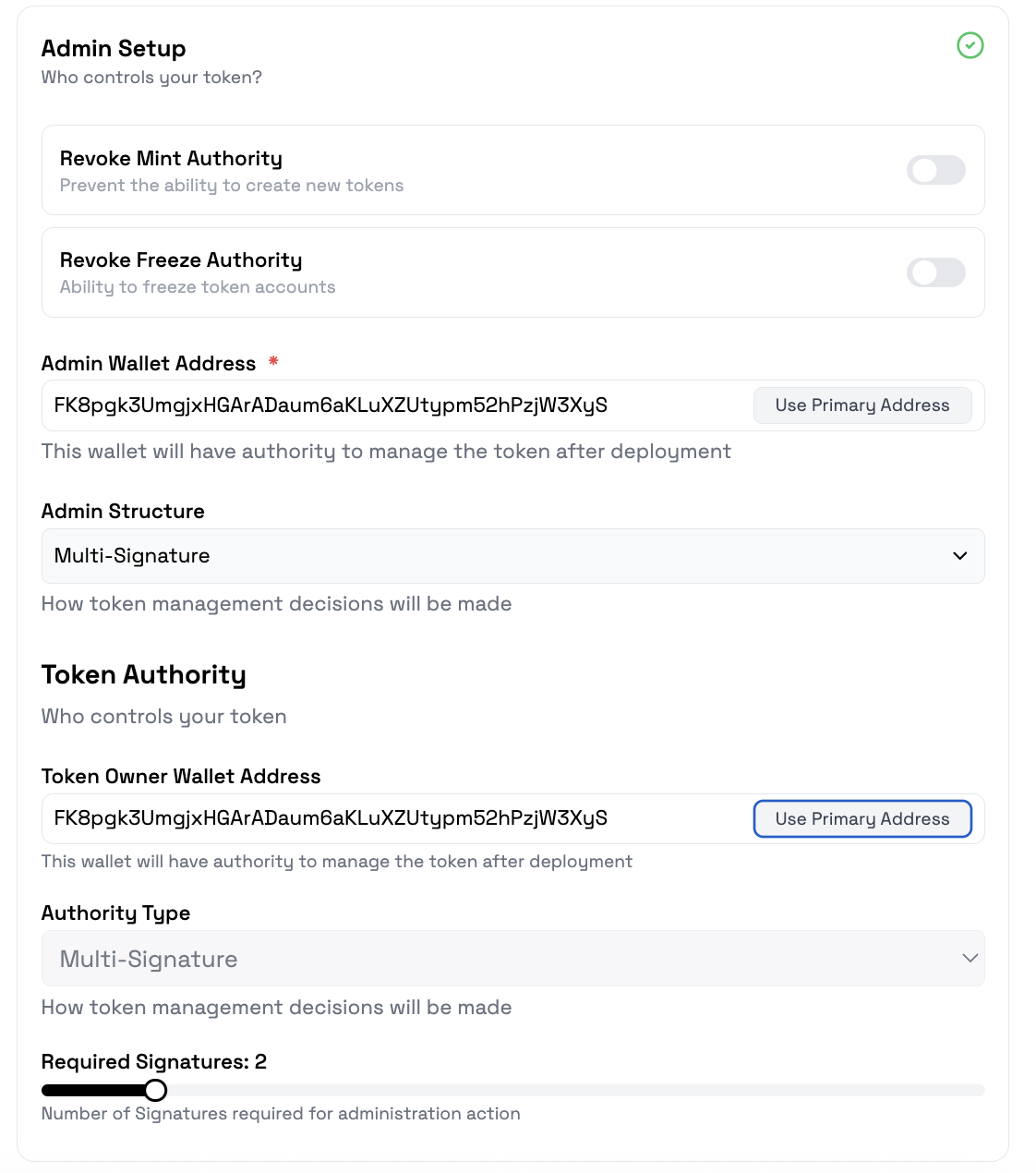
- Admin Structure: Dao Controlled
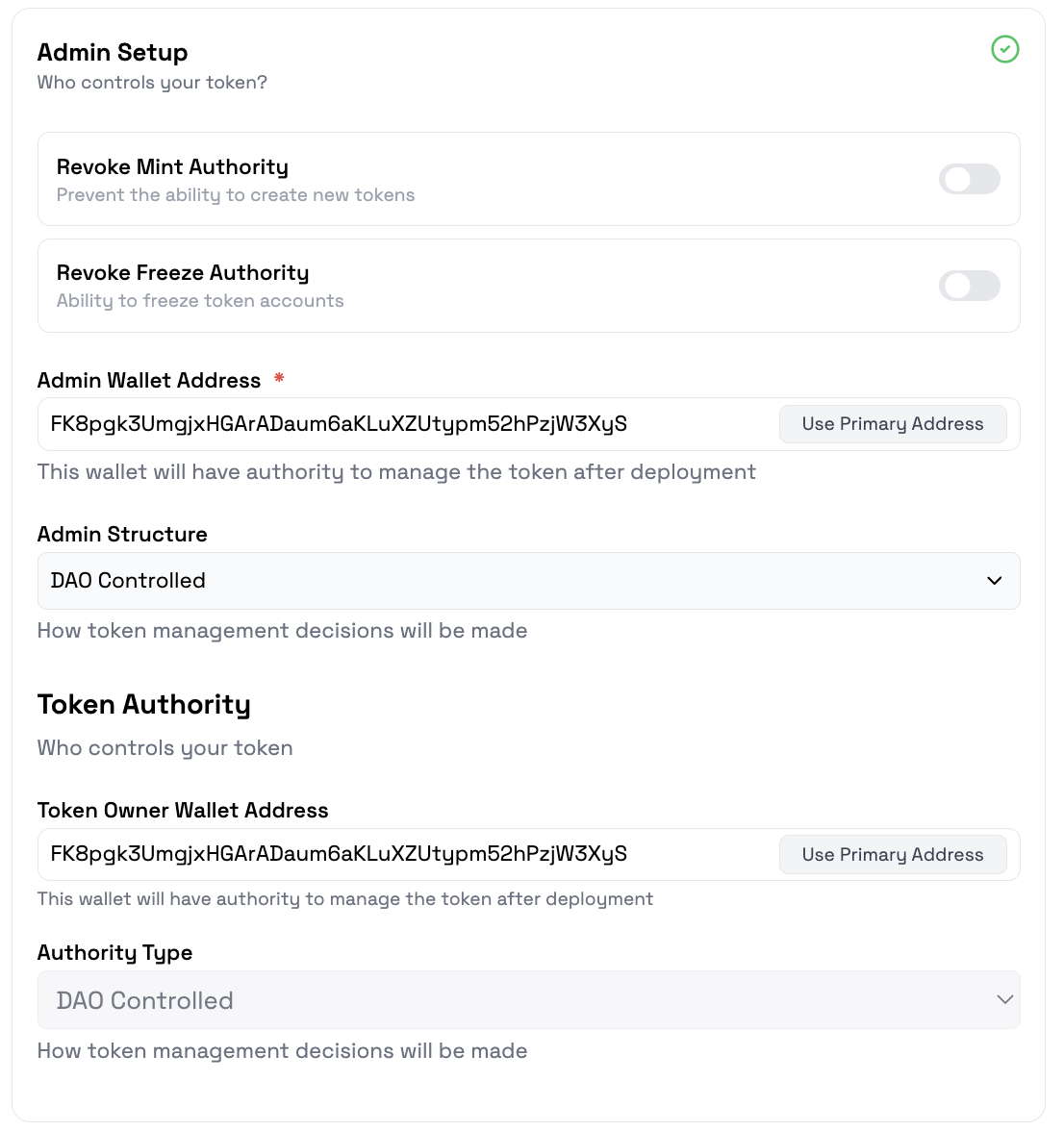
-
🔍 Review & deploy: Double-check all information.
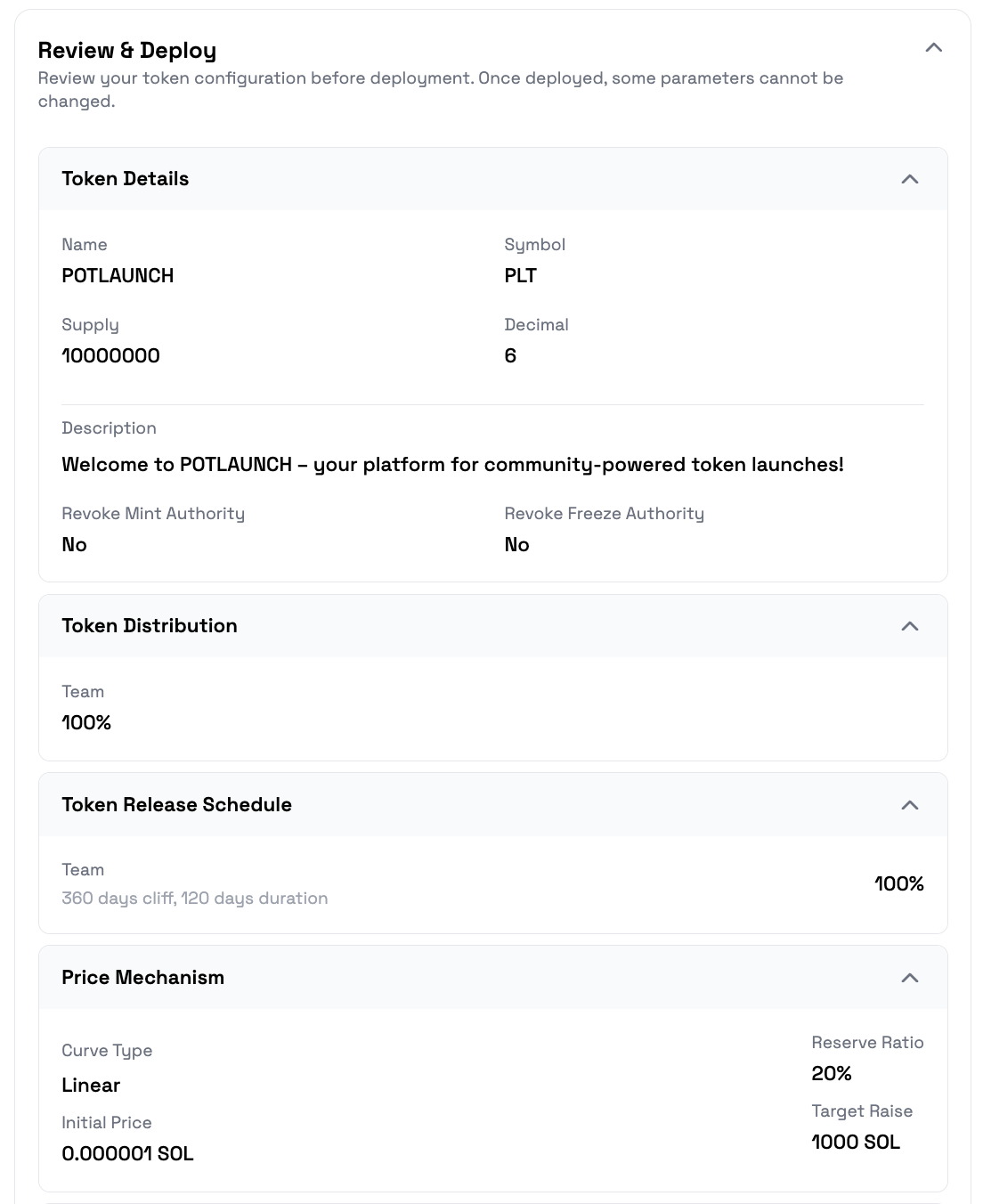
-
🟢 Deploy Token: Click Deploy to finish creating your token!
- When you click deploy token, a waiting pop-up like this will appear
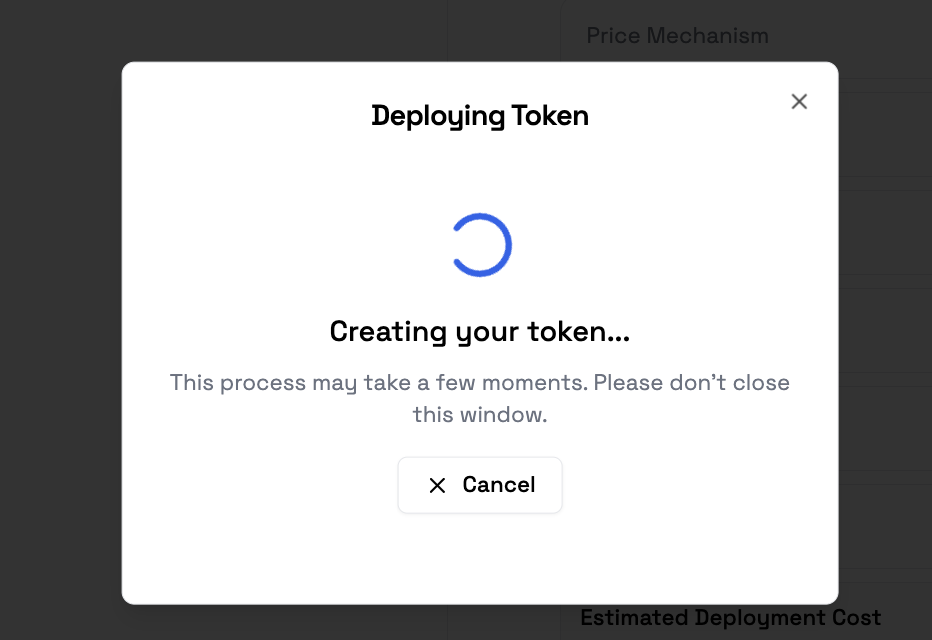
- The last step is to confirm the transaction and you have successfully deployed.
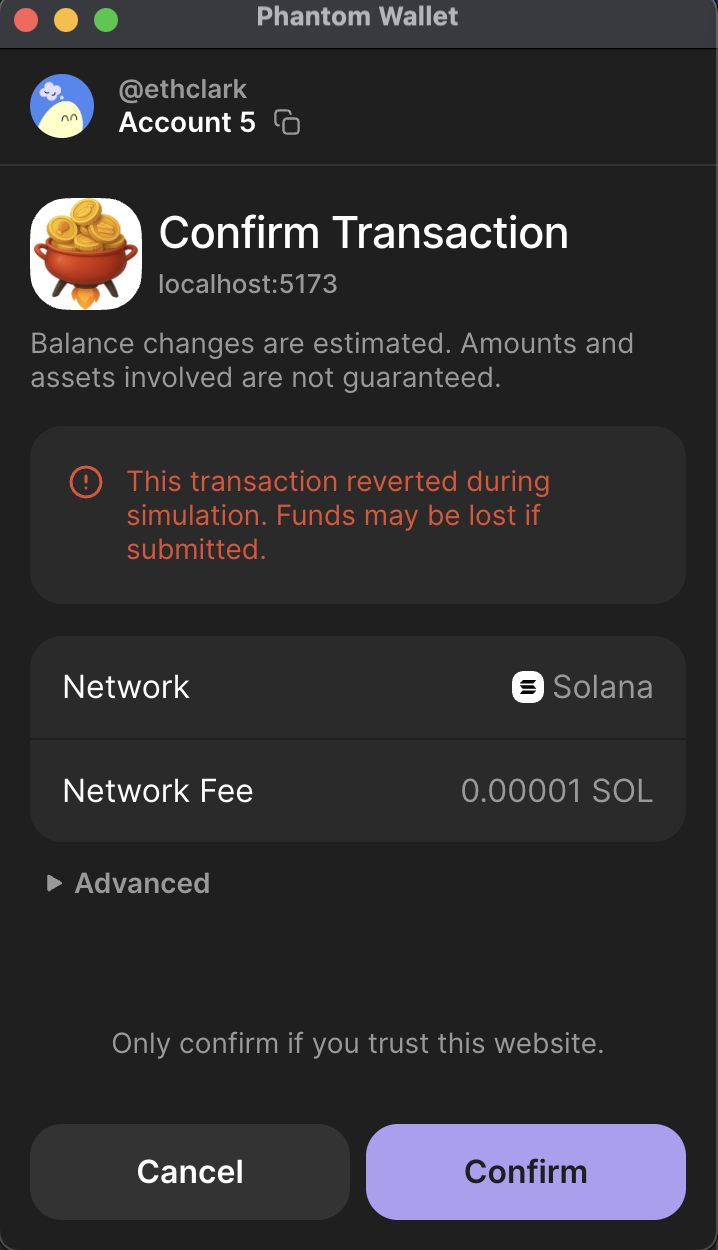
👀 Viewing existing tokens
- To see the tokens you have created, go to My Tokens.
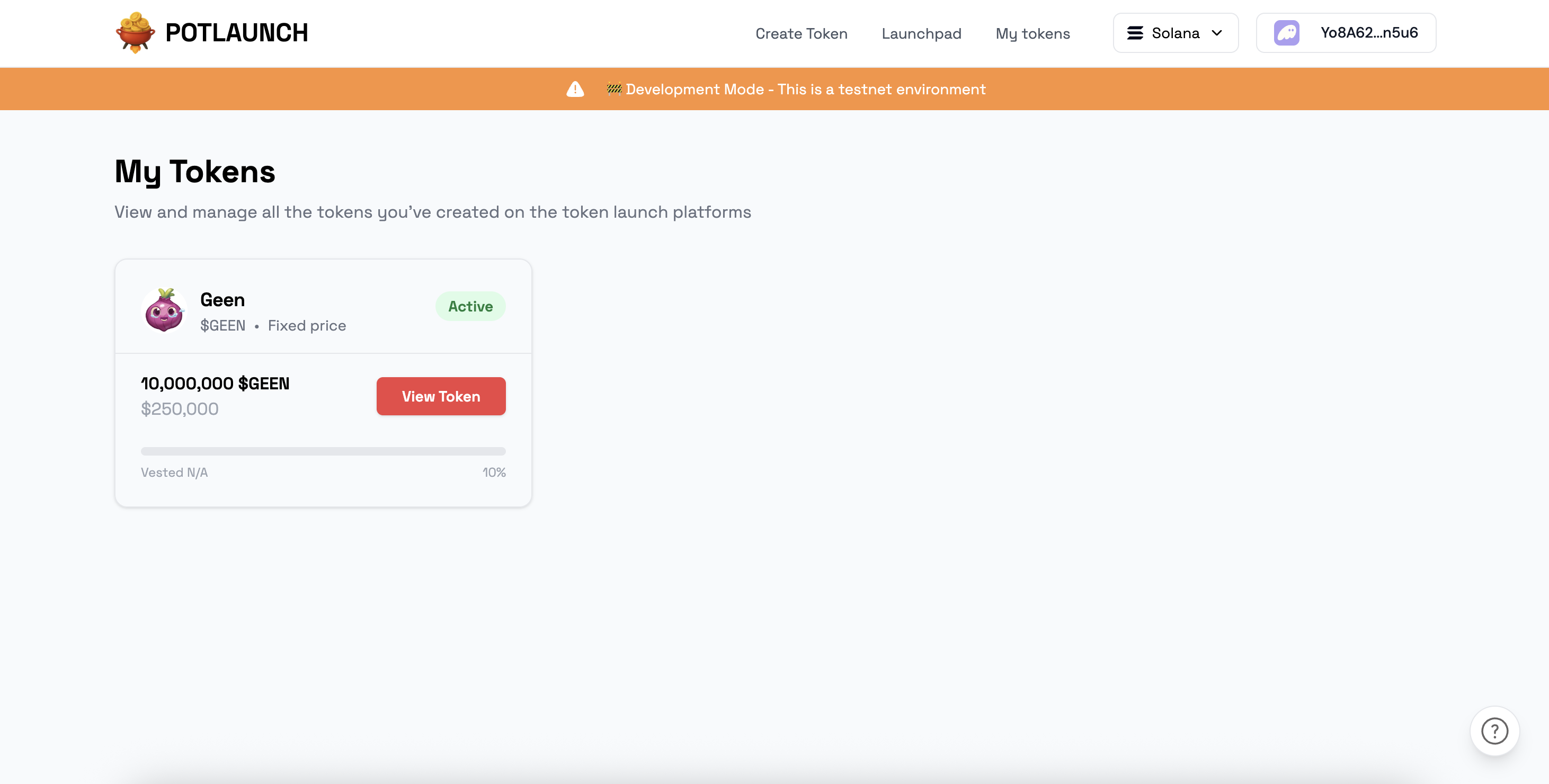
- To explore all tokens on the platform, visit the Token Launchpad.

Trading tokens on the platform
🛒 How to buy tokens
-
Navigate to the Token Launchpad
- Go to POTLAUNCH and click on Token Launchpad in the navigation bar.
- Browse through available tokens or search for specific tokens you're interested in.

-
Select a token to trade
- Click on any token card to view its details, including:
- Token information (name, symbol, description)
- Current price and market cap
- Trading volume and liquidity
- Social links and community info
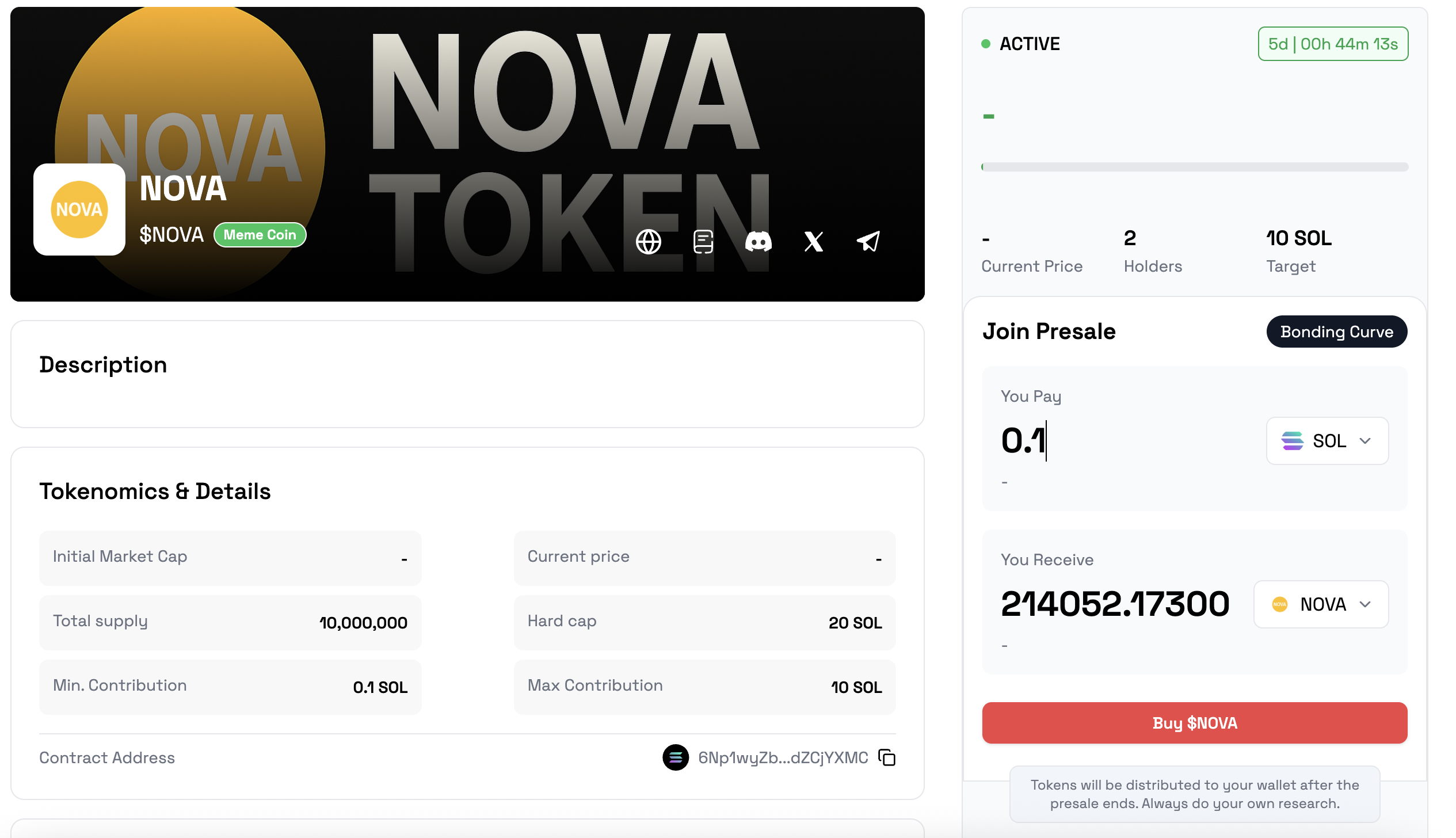
- Click on any token card to view its details, including:
-
Connect your wallet
- Click the Connect Wallet button if you haven't already
- Choose your preferred wallet (Phantom, Solflare, etc.)
- Approve the connection request
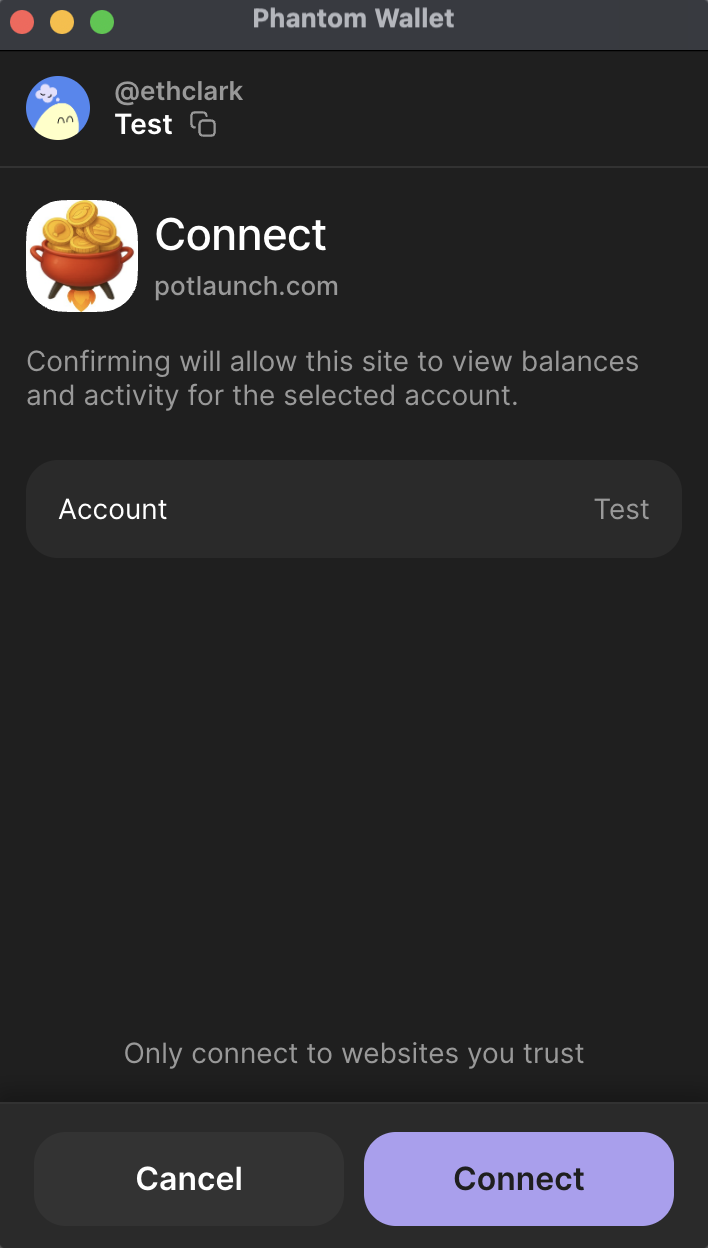
-
Review token details
- Check the token's current price and market statistics
- Review the tokenomics and distribution
- Read the project description and social links
- Verify the liquidity and trading volume
-
Enter purchase amount
- In the trading interface, enter the amount of tokens you want to buy
- The platform will automatically calculate the total cost in SOL
- You can also enter the SOL amount and see how many tokens you'll receive

-
Review transaction details
- Double-check the token amount, price, and total cost
- Verify the transaction fees and slippage tolerance
- Ensure you have sufficient SOL balance for the purchase
-
Confirm the transaction
- Click Buy Tokens or Confirm Purchase
- Your wallet will prompt you to approve the transaction
- Review the transaction details in your wallet

-
Wait for confirmation
- The transaction will be processed on the Solana blockchain
- You'll see a loading indicator during processing
- Wait for the transaction to be confirmed (usually takes a few seconds)
-
Transaction completed
- Once confirmed, you'll see a success message
- Your tokens will be automatically added to your wallet
- You can view your token balance in your wallet or on the platform
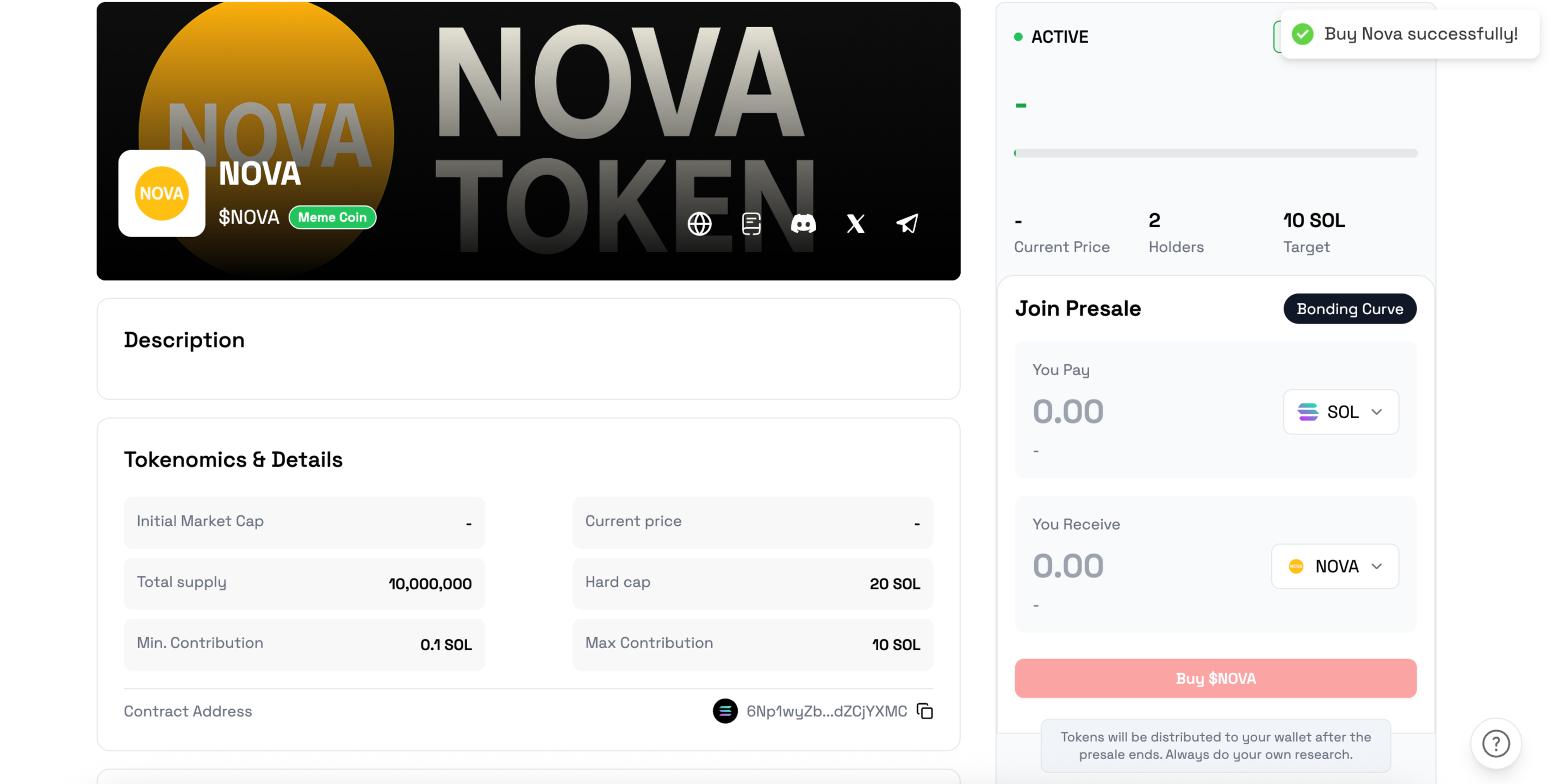
📊 How to sell tokens
-
Access the trading interface
- Go to the token's trading page
- Click on the Sell tab or toggle to sell mode
-
Enter sell amount
- Specify how many tokens you want to sell
- The platform will show the SOL amount you'll receive
- Consider the current market price and liquidity
-
Review and confirm
- Check the exchange rate and fees
- Confirm the transaction in your wallet
- Wait for the transaction to be processed
💡 Trading Tips
- Always DYOR (Do Your Own Research): Research the project, team, and tokenomics before investing
- Check liquidity: Ensure there's sufficient liquidity for smooth trading
- Monitor slippage: Be aware of price impact, especially for large orders
- Use limit orders: Consider using limit orders for better price control
- Keep track of fees: Account for transaction fees and platform fees
- Secure your wallet: Never share your private keys and use hardware wallets for large amounts
🔍 Viewing your portfolio
- My Tokens: View all tokens you've created or purchased
- Transaction History: Track all your buy/sell transactions
- Portfolio Value: Monitor your total portfolio value and performance
- Price Alerts: Set up notifications for price movements
Understanding token economics
🏗️ What are token economics?
Token economics (tokenomics) refers to the economic model and design of a cryptocurrency or token. It encompasses all the factors that influence a token's value and utility, including supply, demand, distribution, and governance mechanisms.
📊 Key token economics concepts
Token Supply
- Total Supply: The maximum number of tokens that will ever exist
- Circulating Supply: Tokens currently available in the market
- Locked Supply: Tokens held in vesting schedules or smart contracts
- Burned Supply: Tokens permanently removed from circulation
Token Distribution
- Team & Advisors: Usually 10-20% with vesting schedules
- Community & Public Sale: 30-50% for fair distribution
- Liquidity: 10-20% for DEX liquidity pools
- Marketing & Development: 5-15% for ongoing operations
- Reserve: 5-10% for future development
Vesting Schedules
- Linear Vesting: Tokens unlock gradually over time
- Cliff Vesting: No tokens until a specific date, then gradual release
- Milestone Vesting: Tokens unlock based on project achievements
💰 Pricing Mechanisms on POTLAUNCH
Bonding Curve Pricing
- How it works: Price increases as more tokens are sold
- Formula: Price = Base Price × (1 + Supply Sold / Total Supply)^Curve Exponent
- Benefits:
- Fair price discovery
- No manipulation
- Continuous liquidity
- Example: Early buyers get better prices, later buyers pay more
Fixed Price Sales
- How it works: All tokens sold at the same price
- Benefits:
- Predictable pricing
- Simple to understand
- Fair for all participants
- Use cases: Initial token sales, private rounds
Dutch Auctions
- How it works: Price starts high and decreases until all tokens are sold
- Benefits:
- Market-driven pricing
- Efficient price discovery
- Prevents FOMO buying
- Example: Price starts at 1 SOL, decreases by 0.01 SOL every hour
🔄 Token Utility & Value Drivers
Utility Functions
- Governance: Voting rights on protocol decisions
- Staking: Earn rewards by locking tokens
- Access: Exclusive features or services
- Payment: Use tokens for platform fees
- Rewards: Earn tokens for participation
Value Drivers
- Scarcity: Limited supply increases value
- Demand: Growing user base and adoption
- Utility: Real-world use cases
- Network Effects: More users = more value
- Speculation: Future potential and hype
📈 Market Dynamics
Supply & Demand
- Bull Market: High demand, increasing prices
- Bear Market: Low demand, decreasing prices
- Equilibrium: Supply meets demand at stable price
Liquidity
- High Liquidity: Easy to buy/sell without price impact
- Low Liquidity: Large trades cause significant price movement
- Liquidity Pools: Automated market makers provide continuous trading
Volatility
- High Volatility: Large price swings, higher risk/reward
- Low Volatility: Stable prices, lower risk
- Factors: Market sentiment, news, whale activity
🎯 Token Launch Strategies
Fair Launch
- No pre-mine: All tokens available to public
- Equal opportunity: Same price for everyone
- Community-driven: Decentralized decision making
- Benefits: Trust, fairness, community ownership
Vested Launch
- Team tokens: Locked for 1-4 years
- Advisor tokens: Gradual release over time
- Community tokens: Immediate access
- Benefits: Aligns incentives, prevents dumping
Tiered Launch
- Whitelist: Priority access for early supporters
- Public sale: Open to everyone
- DEX listing: Continuous trading after launch
- Benefits: Rewards early supporters, fair distribution
💡 Best Practices for Token Economics
Design Principles
- Sustainability: Long-term viability over short-term gains
- Fairness: Equal opportunity for all participants
- Transparency: Clear tokenomics and vesting schedules
- Utility: Real value beyond speculation
- Security: Protection against manipulation
Common Mistakes to Avoid
- Too much supply: Dilutes value and reduces scarcity
- Poor distribution: Concentrates wealth in few hands
- No utility: Pure speculation without real use cases
- Unrealistic vesting: Too short or too long lock periods
- Lack of transparency: Hidden tokenomics or unclear rules
Success Factors
- Strong community: Engaged and active user base
- Clear roadmap: Defined development milestones
- Regular updates: Transparent communication
- Market timing: Launch during favorable conditions
- Partnerships: Strategic collaborations and integrations
🔍 Analyzing Token Economics
Key Metrics to Watch
- Market Cap: Total value of all tokens
- Fully Diluted Valuation (FDV): Value if all tokens were circulating
- Price to Sales Ratio: Token price relative to platform revenue
- Holder Distribution: How tokens are distributed among addresses
- Trading Volume: Daily trading activity
Red Flags
- Concentrated ownership: Few addresses hold most tokens
- No vesting: Team can dump immediately
- Unrealistic promises: Too good to be true returns
- Lack of transparency: Hidden tokenomics or team
- No utility: Pure speculation without use cases
📚 Resources for Learning More
- Token Economics Guides: Comprehensive tutorials and best practices
- Market Analysis Tools: Charts, metrics, and analytics platforms
- Community Forums: Discussions with other token creators and investors
- Expert Consultations: Professional advice for token design
- Case Studies: Analysis of successful and failed token launches